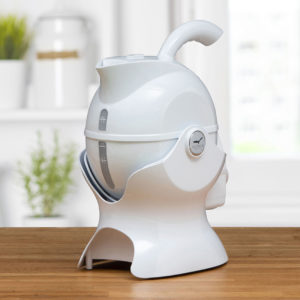Occupational therapy plays a vital role in helping individuals regain independence ini their daily lives. One of the core aspects of occupational therapy is assisting people in mastering Activities of Daily Living (ADLs). These fundamental tasks encompass everyhing from dressing and bathing to cooking and cleaning. Today, we’ll explore the importance of ADLs, the role of occupational therpaists in facilitating them, and strategies for promoting independence.
The Significance of ADLs:
Activities of Daily Living, often referred to as ADLs, are the routine tasks that we perform every day to take care of ourselves. These activities are critical for maintaining our physical health, personal hygiene, and overall well-being. They include:
• Dressing
• Bathing & personal hygiene
• Eating and meal preparation
• Eating and meal preparation
• Mobility (walking, transferring, etc.)
• Toileting
• Managing medications
• Home management (cleaning, laundry, etc.)
The ability to perform ADLs independently significantly impacts a person’s quality of life, self-esteem, and sense of accomplishment.
The Role of Occupational Therapists:
Occupational therapists are experts in helping individuals with physical, cognitive, or emotional challenges regain their independence in ADLs. They assess a person’s functional abilities and design personalised interventions to improve or adapt their performance in these tasks. Here are some ways occupational therapists assist:
- Assessment:
They evaluate a client’s abilities and limitations in performing ADLs.
- Goal Setting:
Collaboratively set goals to improve ADL performance and independence.
- Training:
Teach adaptive techniques, strategies, and use of assistive devices like the Uccello Kettle.
- Environmental Modifications:
Suggest home modifications for safety and accessibility.
- Cognitive Rehabilitation:
Work with clients to improve memory, problem-solving, and decision-making skills.
- Emotional Support:
Address psychological factors that may affect ADL performance.
Strategies for Promoting Independence in ADLs:
Occupational therapists employ various strategies to help clients regain independence in ADLs. Here are effective approaches:
- Task Breakdown:
Divide difficult or complex ADLs into smaller, manageable steps.
- Adaptive Equipment:
Recommend and train clients to use assistive devices like the Uccello Kettle, grab bars, dressing aids, or reachers.
- Graded Activities:
Gradually increase the difficulty of ADLs to build confidence and skills.
- Energy Conservation Techniques:
Teach clients how to conserve energy and minimise fatigue during ADLs.
- Home Safety:
Identify and address potential hazards in the home environment.
- Family and Caregiver Training:
Educate and involve caregivers in the rehabilitation process.
Occupational therapists are crucial in empowering individuals to regain independence in Activities of Daily Living. By assessing abilities, setting goals, and employing personalised strategies, they enable clients to lead fulfilling lives. Whether it’s assisting with dressing, bathing, or meal preparation, occupational therapy plays a vital role in enhancing the quality of life for people of all ages, if you or a loved one are facing challenges in performing ADLs, don’t hesitate to seek the guidance of a skills occupational therapists to regain independance and improve overall well-bring.













Leave a Comment